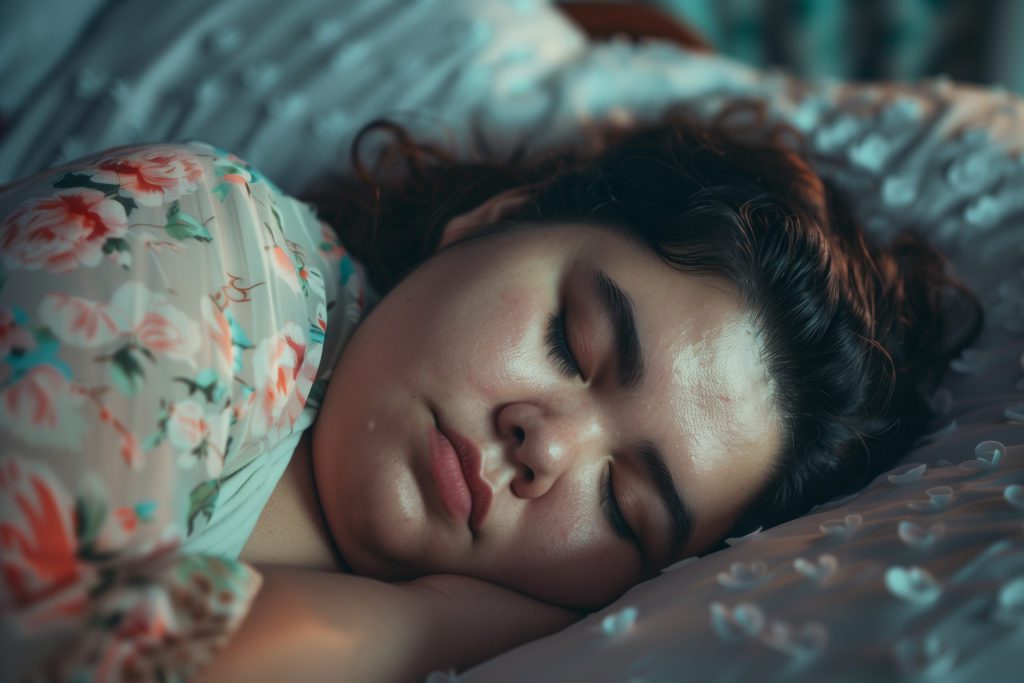
Why Does Coughing Intensify at Night and Disrupt Sleep?
A cough can worsen when you are lying down and interfere with sleep. Some home remedies include drinking hot tea, quitting smoking, and propping your head up at night.

Coughing is bad enough during the day. But, it’s even worse when it happens at night and wakes you up from a deep sleep. Getting enough rest can be hard to accomplish when you can’t stop coughing. When you aren’t able to sleep well, it can leave you feeling awful the next day.
Why do coughs worsen when a person is trying to sleep? There are many reasons from allergens to chronic medical conditions. Your sleep environment may even play a role. Thankfully, there are various strategies that can help you eliminate nighttime coughing and experience fewer interruptions with your sleep. Sometimes a visit to your doctor may be necessary. Read on to learn more.
What Causes Intense Coughing at Night?
There are many reasons why coughing can intensify at night. Dan Pastula, MD told Self that cold symptoms often worsen at night. When you are lying flat, mucus tends to collect and lead to coughing. During the day, gravity helps mucus drain more easily, so you don’t cough as much as you do when you are lying down.
One of the main reasons why coughing intensifies at night has to do with your body’s internal clock or circadian rhythm. Your circadian rhythm regulates your sleep cycle, but it also helps manage your immune system. When you are sick, your immune system is activated. You will experience symptoms, including cough, when your immune system is most active, which is at night when you are sleeping.
Your sleep environment can also lead to more coughing at night. Dry air in your bedroom can irritate your throat causing you to cough in the middle of the night. Exposure to allergens, such as dust mites or pet dander on your bedding, can also cause nighttime coughing. In addition, there are several chronic medical conditions that can lead to a persistent nocturnal cough, including:
- Gastroesophageal reflux disease (acid reflux) - Causes a chronic cough when you are lying down.
- Postnasal drip - This happens when mucus gathers in the back of your throat. It’s caused by viral infections, sinus infections, and allergies. It is one of the most common causes of nighttime coughing.
- Asthma - During sleep the airways narrow, which can trigger intense nighttime coughing in people with asthma.
- Heart failure - Excess fluid builds up in the lungs, which can lead to coughing when a person lies down.
- Chronic Obstructive Pulmonary Disease (COPD) - This lung disease produces a hacking, chronic cough at night that won’t go away. This cough can affect sleep, which might partially explain why people with COPD often have poor sleep.
How to Stop Coughing at Night
So, how can a person better sleep at night with a cough? There are several things you can do if coughing is interfering with your sleep.
Avoid Over-the-Counter (OTC) Cough Medications
If coughing is causing you to wake up out of a deep sleep, your first thought might be to grab some OTC cough meds. But, not so fast! These medications, particularly dextromethorphan (Robitussin) and diphenhydramine (DayQuil) can disrupt your sleep. Drowsiness and trouble sleeping are known side effects of these medications.
Quit Smoking
Smoking is one of the most common reasons for chronic nighttime cough. People who smoke often develop a persistent cough that can be worse at night or in the early morning just before you wake up. This cough is the body’s way of getting rid of toxic chemicals found in cigarettes. Chronic coughing in the morning can cause you to wake up earlier than normal — resulting in fewer hours of sleep.
Drink Tea With Honey
Before bed, drink a cup of non-caffeinated tea with a tablespoon of honey. Honey is one of the most effective natural remedies for nocturnal cough. It is a natural cough suppressant. The honey also helps to reduce throat irritation and soothes the throat. The warm temperature of the tea will also calm an irritated throat. For even more cough-fighting power, add a little lemon to the tea. Lemon has also been found to reduce coughing because it is an anti-inflammatory.
Wash Your Bedding
If you have allergies to dust mites or pet dander that is in your bedding, you may start coughing as soon as your head hits the pillow at night. Therefore, regularly wash all of your sheets, pillowcases, blankets, and duvets in hot water. Then, dry these items on the hottest setting. Heat is the best way to get rid of allergens that might be causing you to cough.
Prop Your Head Up
Sleeping flat on your back can cause mucus to build up in your throat, which can trigger nighttime coughing. Therefore, use a wedge pillow or stack a couple of pillows up to elevate your head. All you need is a slight elevation. Avoid stacking too many pillows, as this can cause neck pain, which can interfere with sleep.
Use a Humidifier
If the air in your home is too dry, it can cause your throat to become itchy and dry. Many heating and air conditioning systems (HVAC) cause dry air. A humidifier will add moisture to the air in your bedroom. This will help ease throat discomfort, reduce coughing, and help you sleep better. Plus, a humidifier will provide white noise, which may make it easier for you to fall asleep.
Take a Warm Shower
Taking a warm shower before bed can loosen up mucus and nasal secretions. Allow steam to build up in the shower to help open your airways. Warm showers are also great for helping you relax and wind down before bed. They can be a great part of a bedtime routine.
Talk to Your Doctor
If your cough persists or seems severe in spite of these interventions, make an appointment with your doctor. There could be an underlying condition that is causing your nighttime coughing, like acid reflux, pneumonia, or asthma. It can be helpful to track your sleep and let your doctor know how the nighttime coughing is affecting your slumber.
FAQ
Why do I cough more at night?
Coughing tends to worsen at night because when you lie flat, mucus accumulates in your throat, which can trigger coughing. Additionally, your body’s circadian rhythm influences immune activity, making symptoms like coughing more noticeable during sleep. Dry air or allergens in your sleep environment can also irritate your throat and contribute to nighttime coughing.
What medical conditions cause nighttime coughing?
Several medical conditions can contribute to persistent coughing at night. Gastroesophageal reflux disease (GERD) causes acid to move into the throat when lying down, leading to coughing. Postnasal drip from colds or allergies collects in the throat and triggers a cough. Asthma can narrow the airways during sleep, and conditions like heart failure or COPD may cause fluid buildup or respiratory irritation, resulting in a chronic cough.
How can I reduce nighttime coughing?
There are several ways to reduce nighttime coughing. Try using a humidifier to add moisture to the air, which soothes dry throats. Drinking non-caffeinated tea with honey before bed can help reduce throat irritation. Propping your head up with pillows or sleeping on a wedge can prevent mucus from collecting in the throat. Washing bedding frequently removes allergens that might trigger a cough.
Can over-the-counter cough medications help with nighttime coughing?
While it might be tempting to use over-the-counter (OTC) medications, certain types like dextromethorphan (Robitussin) or diphenhydramine (DayQuil) can disrupt your sleep, as they may cause drowsiness or interfere with your ability to fall asleep. In some cases, OTC medications may not be necessary, and home remedies may provide more relief without the side effects.
When should I see a doctor for nighttime coughing?
If your cough persists for several weeks or becomes severe, it's important to consult a doctor. Conditions like acid reflux, asthma, pneumonia, or chronic lung diseases could be the underlying cause of your nighttime coughing. Tracking your symptoms, including how your cough impacts your sleep, can provide useful information for your doctor to diagnose and treat the issue effectively.

Written by
Emily Mendez
Emily Mendez is a former therapist and mental health author. She is one of the leading voices in mental health. Emily's writing has appeared in eCounseling, SonderMind, and more. Emily is frequently interviewed by Healthline, Fatherly, INSIDER, Family Circle, and other national media for her advice and expert opinion on the latest mental health topics.
Download Pillow
Get help
Press & News
Legal
Connect
X (Twitter)
Company
Copyright © Neybox Digital Ltd.



